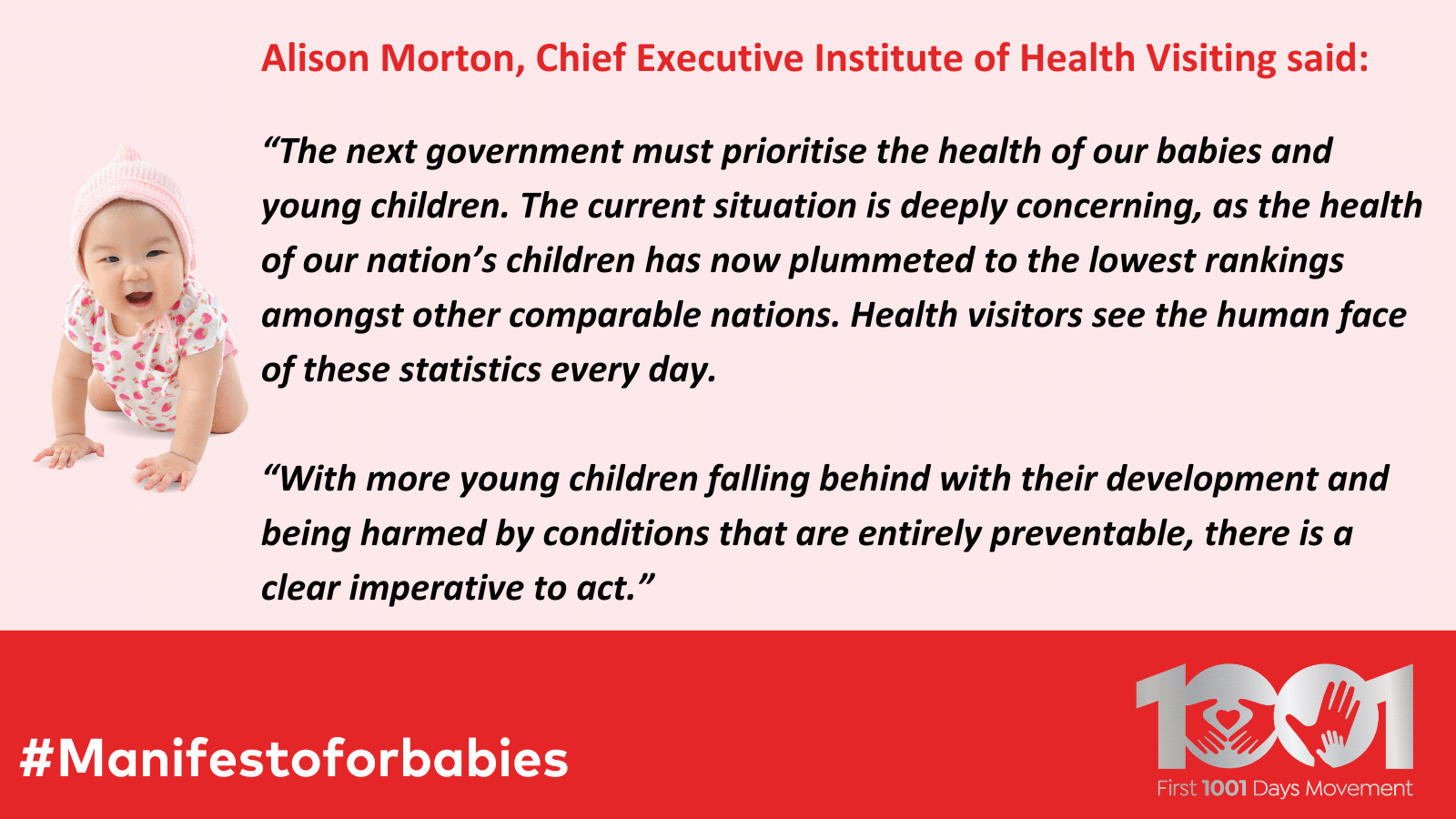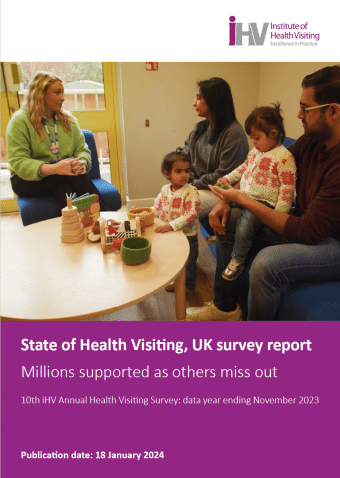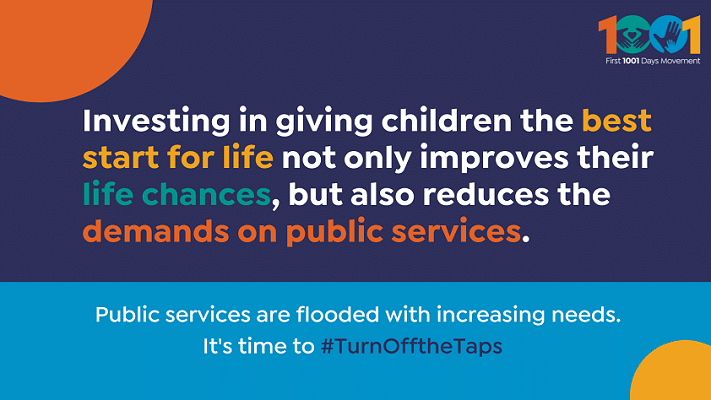Today, Sir Keir Starmer launched the Government’s long awaited 10-Year Health Plan, “Fit for the Future”, to transform health services in England. Health visiting teams across the country will be wondering what it means for the babies, children and families they support, as well as for the health visiting workforce itself. At the iHV, we will be working our way through the finer details of what’s in the plan – as well as what’s missing or still awaited (notably the delivery plan and workforce plan) – and have summarised the main points in our initial response today.
The Plan is shaped around the three key shifts which were the focus of the Government’s earlier consultation, to shift healthcare:
- from hospitals to communities – Neighbourhood Health Centres will be available in every community
- with much greater emphasis on prevention and early intervention – and a focus on the early years, particularly the critical 1,001 days
- maximising the role of digital technologies.
To support the scale of change ‘at pace’, the Government will develop:
- A new operating model, to drive devolution. Integrated Care Boards will be strategic commissioners of local health services. Improvements in care will be driven by less top-down regulation, with a focus on driving better value and outcomes. Greater clarity will be provided about roles and purpose in the system, by establishing clear priorities, mandating fewer targets, and equipping local leaders to improve population outcomes.
- A new workforce model (with the detailed workforce plan due to be published in the autumn). The aim is to ‘harness the ingenuity of staff working at the frontline of healthcare and which gives them freedom to operate’.
- A different approach to NHS finances, to embrace partnerships and create new collaborations – in particular, a focus on investing in five ‘big bets’ for technological transformation, including AI, seamless data flows, and genomics.
The aim of the Plan is to make access to healthcare more convenient for patients and easier to fit around their day-to-day lives, with one core purpose to ‘put power in patients’ hands’. The shift to prevention contains an overall ambition to ‘halve the gap in healthy life expectancy between the richest and poorest regions, while increasing it for everyone, and raising the healthiest generation of children ever’.
From the perspective of babies, children and families, the Plan mentions children 105 times and babies 7 times – which is encouraging for a high-level plan like this. Chapter 1 of the Plan, “It’s change or bust” sets out the case for change – recognising that children are sicker today than a decade ago and adults are falling into ill health earlier in life.
Key Commitments for babies, children and families, and the health visiting workforce include:
Introduction of Neighbourhood Health Services – Multidisciplinary teams, including health visitors, will be embedded in local communities to provide care closer to home. These centres will operate 12 hours a day, six days a week.
New models for health visiting. The Government has set out their commitment to maximising the public health role of health visitors, with:
- The introduction of ‘new models where health visitors can administer vaccines to babies and children in underserved groups, to increase uptake’.
- A commitment to, ‘ensure that health visitors fully support children’s broader development as part of this government’s plan to give children the Best Start in Life – including supporting higher uptake of and better quality early childhood developmental checks’.
Family Hubs in all communities. The Plan states that, ‘Ensuring every child has the best start in life is essential to future health and education outcomes. Building on the legacy of Sure Start, Family Hubs and Start for Life programmes have started to bring together children’s services, NHS, and public health with a focus on the critical 1,001 days. We will bring this support to all our communities by matching Start for Life to Family Hubs expansion to ensure seamless provision of services for families with young children’.
Local commissioning to improve support for SEND. To ‘ensure that Neighbourhood Health Services work in partnership with Family Hubs, schools, nurseries and colleges to offer timely support to children, young people and their families including those with Special Educational Needs and Disabilities (SEND). Start for Life services will be extended to the whole conception to age 5 range, enabling additional health visitor and speech and language support for children and their families’.
Digital transformation – Improving NHS digital tools and capabilities and harnessing the technology that will make the NHS a genuine health service – not just a sickness service. Commitments include the national procurement of a new digital platform available to all NHS provider organisations, the introduction of ‘My Children’ (described as a 21st century alternative to the red book) to provide digital advice and support throughout childhood, and further developments to the NHS App and Single Patient Record.
Improve children’s oral health – by improving access to NHS dentistry, expanding community water fluoridation in the northeast of England. Dental therapists and nurses will take on more responsibilities, such as fluoride varnish application and school outreach. Newly qualified dentists will be required to work in the NHS for at least three years to improve access for children.
Mental Health Support – With plans to expand mental health support teams in schools and colleges – and provide additional support for children and young people’s mental health through Young Futures Hubs. The Plan also sets out to increase capacity for urgent mental health care by developing dedicated mental health emergency departments (MHEDs). Mental health services will be transformed into 24/7 neighbourhood care models, with improved outreach care and a focus on narrowing mental health inequalities.
Preventative Health Measures – The Plan includes goals to create a smoke-free generation, end the obesity epidemic, and solutions to the mental health crisis ‘engulfing our young people’ with a range of initiatives all designed to tackle root causes of poor health early.
Quality metrics – to measure the impact of care from the patient’s perspective, these will include patient reported outcome measures (PROMs) and patient reported experience measures (PREMs) in a more systematic and comparable way. Developing these indicators for maternity care will be the government’s first priority, to support safe, personalised and equitable maternity care.
Genomics – The creation of a new genomics population health service. This will include the implementation of universal newborn genomic testing, informed by the current Generation Study.
An NHS workforce fit for the future – Whilst today’s plan lacks detail on the workforce plan needed to deliver the 10-year Plan (which we understand is due to be published later this year), it recognises that the success of the NHS rests on its workforce. The Plan includes pledges to return the ‘joy’ of work, increase professional autonomy, and support career progression through new ‘skills escalators’ to ensure ‘every individual is supported to reach their full professional potential’. Alongside this, there is a pledge to embed a culture of lifelong learning and completely reform mandatory training.
The Government’s commitment to strengthening the health visitor workforce has been confirmed this week by the Minister for Public Health and Prevention, Ashley Dalton MP, in the adjournment debate on breastfeeding, with the following statement that will be welcomed by health visitors:
“As families transition from maternity services to the community, it is important that they continue to receive the support they need, and health visitors are key to this. However, we know that health visitor numbers have decreased and there is variation in the level of services across the country, but it remains a universal service, and we are committed to that. In the plan for change, we committed to strengthening health visiting services so that all families can access their support”.
In our initial response to the Plan, Alison Morton, iHV CEO said:
“At the iHV, we welcome the Government’s plans for the NHS, with bold ambitions and a renewed commitment to give every child the best start in life, focus on the critical first 1,001 days and create the healthiest generation of children ever. It is hard to disagree with many of the headline messages contained in today’s plan which are aspirational, promising better health care for patients and better working conditions for staff.
“Health visitors are ready and willing to support the Government to deliver this plan. We want it to be a success, as we have long called for an end to the ‘tick box’ culture in healthcare and a greater focus on personalised care, professional autonomy, and integrated working across healthcare to improve support for families. However, it is clear that delivering this ambitious plan will require sustained investment over the next 10 years. We now need the Government to set out its plan for delivery, the workforce needed to turn it into reality, and to end the years of uncertainty that has undermined the confidence of so many brilliant people who work in the NHS.”













